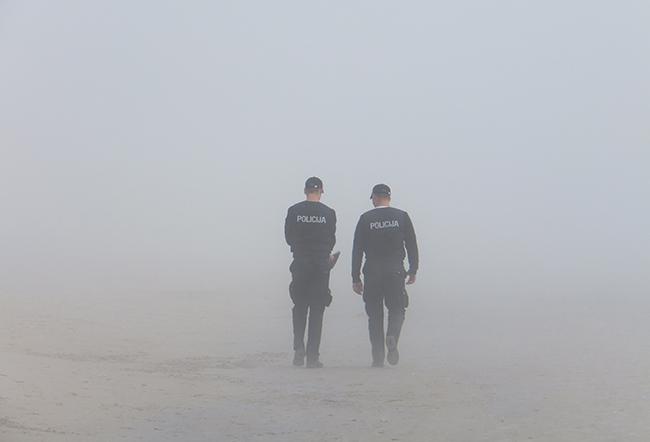Police seized 13,898 migrants last year, 52 percent fewer than the previous year
Police officers detected some 14 000 migrants in the Czech Republic last year who were staying in the country illegally. Compared to 2022, the number has decreased by more than 15,000, or 52.4 percent. The decrease was mainly due to fewer refugees trying to reach other EU countries via the Czech Republic. The Interior Ministry said this in its annual report on migration and integration of foreigners. According to the report, migrants apprehended during transit migration accounted for only 34 percent of the foreigners detained by police. A year earlier, it was almost 75 percent.
According to the ministry, the decline in refugees was mainly influenced by measures introduced by the Serbs on the border with Hungary, controls in the Czech Republic and neighbouring countries, and measures on the German-Czech border. "It has significantly discouraged irregular migrants and smugglers from using the transit through the Czech Republic and to seek new routes," the ministry wrote in its annual report.
In total, officers apprehended 13,898 foreigners. As in the previous year, most were Syrians. They numbered 4,225 and accounted for almost a third of all refugees detained. However, their number was down by 16,765 compared to 2022. The number of detained Turks, who are in fourth place, also fell. On the other hand, police detained more Ukrainians and Moldovans compared to the previous year.
Police officers also refused to let 407 foreigners into the Czech Republic. "The most common reason for refusing entry to the Czech Republic in 2023 was the registration as an undesirable foreigner, which also ranked first in the previous year," the ministry said. The number of migrants who were refused entry by the police because they were "considered a threat to public order, internal security, public health or the international relations of one or more EU member states" increased. The increase was caused by the measure to refuse entry to Russian citizens.
Source: CTK









